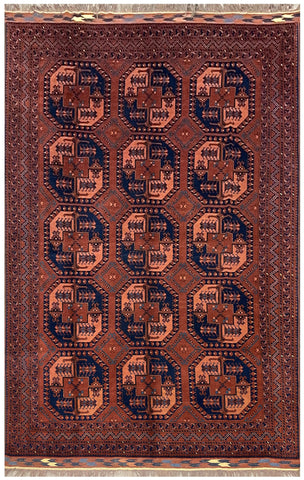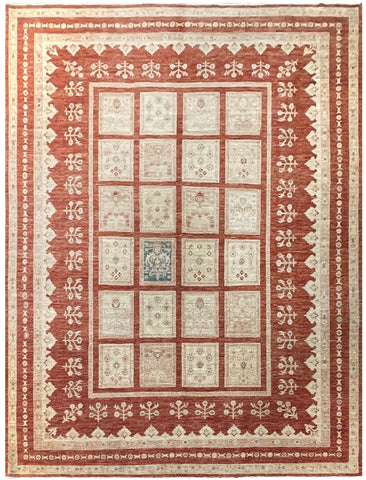16043-Royal Shirvan Hand-Knotted/Handmade Russia Rug/Carpet Tribal/Nomadic Authentic/Size: 9'8" x 7'3"
Previous Product Next ProductBabak's Oriental Carpets
1 in stock
Large Carpet
NR: 16043
Location: Royal Shirvan
Size: 9'8" x 7'3"
Country: Russia
Pile: Wool
Base: Cotton
SHIRVAN
Details:
Royal Shirvan is one of the principal weaving areas of the Caucasus stretching from the central east coast some 400 km inland and encompassing towns which produce particular design variations common to the Shirvan group. These include Bidjov, Marasali,...
NR: 16043
Location: Royal Shirvan
Size: 9'8" x 7'3"
Country: Russia
Pile: Wool
Base: Cotton
SHIRVAN
Details:
Royal Shirvan is one of the principal weaving areas of the Caucasus stretching from the central east coast some 400 km inland and encompassing towns which produce particular design variations common to the Shirvan group. These include Bidjov, Marasali, Khila, Surahani, Baku and Saliani. The Shirvan rugs are noted as being some of the finest Caucasian rugs. They are usually thin and densely knotted. The warp threads are usually light made of undyed brown sheep’s wool spun together. The wefts are light and thin, and selvages are usually white over double or triple threads. Cotton wefts are also seen, as are silk wefts.
Kuba rugs and carpets are named for a town that is located within the Daghestan region of Caucasus not far from the Caspian Sea; these rugs are also considered a sub-division of Caucasian carpets.
Description:
Shirvan rugs are attractive for their quiet, agreeable tints, and fine, even texture. They are made in large quantities, and are readily sold. The best are of white wool, but the inferior ones may hold cotton or goat’s hair. Often blues and whites are the colors employed, with markings of red or yellow. Sometimes there are stripes in the border – one wide stripe followed by a series of narrow ones. The hook is a frequent design, and may be found in the field incasing some geometrical figure. Sometimes a conventionalized floral design is observed in the border.
Prior to the coming of the Russians, Daghestan was the only mountainous area of what is now Daghestan and the flat area near the sea was called Derbent. When the Russians set up their administrative districts, they combined the two and called it “Daghestan.” The key to identification is that the Daghestan rugs have a deeply ribbed back. On a Kuba rug look for warp depression of about 45 to 70 degrees and for Daghestan rugs the warp depression will be over 70 degrees.
Price Range and Value:
MEDIUM TO HIGH (Collectable Antiques)
For any further questions please call us at: (250) 480-7114
Shirvan Articles & VideosWikipedia Entry (Article)
Carpet Production (Video)>
Documentary (Video)
Landscapes and Nature (Video)



















